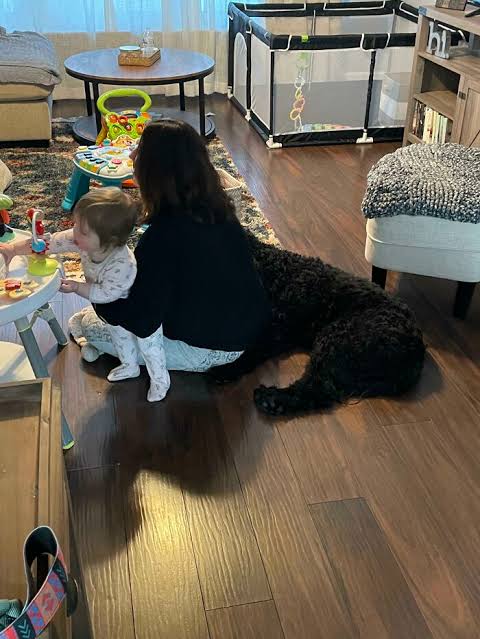The morning began with a shock I will never forget. A bucket of icy water cascaded over me, drenching my hair, my clothes, and the very sense of peace I had hoped to hold onto. My body jolted awake, not because of the sun creeping through the curtains, but because of the cruel chill of water trickling down my skin. I gasped, trembling, unable to process what had just happened.
Standing above me was my mother-in-law, her expression stern, her tone sharp.
“Time to wake up,” she announced, as though nothing unusual had taken place.
For a moment, I could only sit in stunned silence, water pooling around me. My mind raced with disbelief and indignation. Was this really how she saw fit to treat me? I wanted to believe it was some bizarre attempt at humor, but her eyes told another story. This was no joke—it was another deliberate act in a long history of subtle, and not-so-subtle, hostility.
A Pattern of Tension
This wasn’t the first time I had felt the sting of my mother-in-law’s disapproval. From the moment I married her son, it seemed as though I had stepped into a silent competition I never signed up for.
Her critiques were constant, often wrapped in polite tones but carrying sharp edges. My cooking wasn’t quite right. The way I folded laundry wasn’t the way she had taught her son. My approach to family traditions seemed too modern, too casual, too different.
At first, I brushed it off. I told myself, She just needs time to get used to me. But as days turned into months, and months into years, the criticism only intensified. What began as side comments grew into glaring acts of disregard. And now, as I sat dripping in cold water, shivering in both body and spirit, I realized this was no longer something I could ignore.
The Loneliness of That Morning
My husband was away on a business trip. If he had been home, perhaps things would have unfolded differently. Maybe she wouldn’t have dared to take such a drastic action in his presence, or maybe he would have been the mediator I so desperately wished for. But that morning, it was just the two of us, and I was left to face her boldness alone.
I gathered myself, rising from the bed with every ounce of dignity I could muster. My wet pajamas clung uncomfortably to my skin, each step leaving small puddles on the floor. I could have chosen to retreat, to change clothes and hide away, but something inside me refused to remain silent any longer.
The Kitchen Confrontation
I found her in the kitchen, sipping tea as though she had just completed a routine chore. The steam from her cup curled in the air, calm and delicate—so different from the chaos she had just caused.
Her calmness only fueled the storm inside me. How could she sit there so serenely after humiliating me in such a way? I took a deep breath, steadying my voice, and asked the question that had long been buried in my heart.
“Why do you feel the need to treat me this way?”
My tone was calm, but inside, my heart pounded like a drum. For a brief moment, surprise flickered across her face. She wasn’t used to my directness; usually, I kept my frustrations bottled up, too fearful of stirring greater conflict. But not today.
“All I’ve ever wanted is for us to have a good relationship,” I continued, “but your actions show me again and again that you don’t see me as part of this family—you see me as an intruder.”
Her Justification
Her expression shifted, the firmness in her eyes softening just slightly. She set down her teacup and replied, her voice less biting than usual.
“You need to understand something,” she said, “I only want what’s best for my son. I raised him with certain values, certain standards. And sometimes, I feel like you don’t meet those expectations.”
There it was—the unfiltered truth. In her eyes, I was not enough.
I felt the sting of her words, but I refused to let them crush me. I met her gaze and answered gently but firmly:
“Your son loves me, and I love him. That should be enough. I may not fit your idea of perfection, but he is happy with me. Isn’t that what you truly want for him—to see him happy?”
For a moment, silence stretched between us. It was as though the air itself had grown heavy with the weight of my words. Her expression softened—barely, but noticeably. Perhaps, behind her rigid exterior, there was a mother who genuinely cared about her son’s well-being, even if she struggled to accept me.
A Turning Point
“I’m willing to work on this relationship,” I said, my voice steady, “but it has to go both ways. I can’t keep living under this hostility. For his sake—and ours—we need to find a way to coexist.”
Her silence lingered, but the tension in the room eased slightly. I could tell my words had reached her, even if she wasn’t ready to admit it aloud. Maybe I hadn’t won her over completely, but I had finally opened the door to dialogue—a door that had been tightly shut until now.
I turned to leave the kitchen, my wet footsteps echoing softly on the floor. For the first time in years, I felt a glimmer of empowerment. I wasn’t just surviving in her presence anymore—I was standing up for myself.
Reflections: Beyond the Conflict
That day marked a turning point in my journey with my mother-in-law. The cold water was more than a physical shock; it was a wake-up call for me emotionally. I realized I had spent too much time waiting for her approval, shaping myself around her criticisms, and hoping that one day she would accept me.
But true peace doesn’t come from bending until you break—it comes from standing tall in who you are. And in that moment, I chose to do exactly that.
Over time, our relationship didn’t transform overnight. There were still disagreements, still moments of coldness. But something had shifted. She knew I was no longer silent, no longer willing to endure mistreatment without addressing it. And I, in turn, learned that boundaries weren’t walls to divide us—they were bridges to healthier interactions.
Lessons Learned
This experience, as painful as it was, taught me several important lessons:
-
Self-respect comes first. If you don’t stand up for yourself, others may never recognize your worth.
-
Relationships require balance. Both sides must be willing to give, listen, and compromise.
-
Love doesn’t need perfection. Happiness in marriage doesn’t come from meeting someone else’s impossible standards but from cherishing the bond between two people.
-
Communication changes everything. Silence breeds resentment, but honest dialogue—even when difficult—opens doors to healing.
A Hopeful Future
To this day, I carry that memory with me. Not as a scar, but as a reminder. The morning my mother-in-law poured cold water on me was the morning I discovered my own strength.
Our relationship may never be picture-perfect, but it has grown. Slowly, she has softened, and I have learned to be patient. We will likely always have differences, but what matters is that we are learning, little by little, to respect one another.
Because at the end of the day, love is not just about the bond between husband and wife—it’s about the family you build around you. And while challenges may arise, it’s in facing them with courage and compassion that true growth begins.

















































